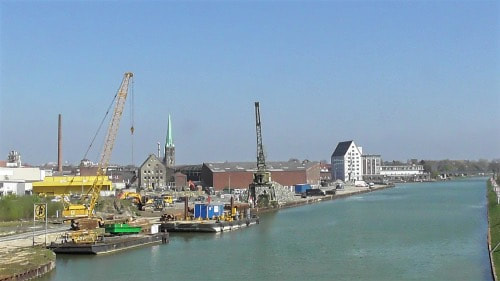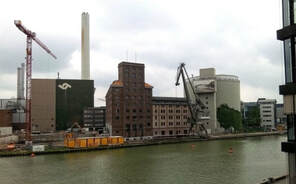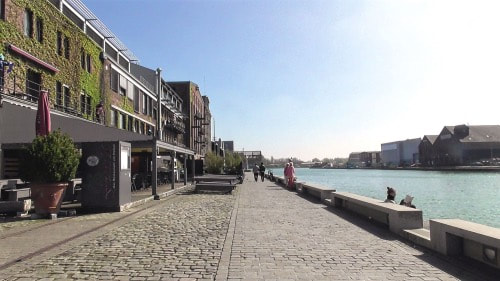un, in, im prefix exercises
un, in, im prefixes before words
Exercises using un-, in-, im- before words
1. "Sometimes, meeting every client's demands is ________."
a. possible (möglich)
b. difficult (schwierig)
c. impossible (unmöglich)
a. possible (möglich)
b. difficult (schwierig)
c. impossible (unmöglich)
2. "The project failed due to the manager's ________ decision-making."
a. adequate (angemessen)
b. effective (effektiv)
c. inadequate (unzureichend)
a. adequate (angemessen)
b. effective (effektiv)
c. inadequate (unzureichend)
3. "An ________ approach in negotiations can hinder reaching an agreement."
a. flexible (flexibel)
b. inflexible (unflexibel)
c. adaptable (anpassungsfähig)
a. flexible (flexibel)
b. inflexible (unflexibel)
c. adaptable (anpassungsfähig)
4. "Their marketing strategy was ________ in reaching the target audience."
a. effective (effektiv)
b. successful (erfolgreich)
c. ineffective (ineffektiv)
a. effective (effektiv)
b. successful (erfolgreich)
c. ineffective (ineffektiv)
5. "Infrequent performance reviews can lead to ________ among employees."
a. certainty (Sicherheit)
b. clarity (Klarheit)
c. uncertainty (Unsicherheit)
a. certainty (Sicherheit)
b. clarity (Klarheit)
c. uncertainty (Unsicherheit)
6. " ________ data can result in poor business decisions."
a. excellent (ausgezeichnet)
b. Incomplete (unausreichende)
c. informed (informiert)
a. excellent (ausgezeichnet)
b. Incomplete (unausreichende)
c. informed (informiert)
7. " ________ customer service can damage a company's reputation."
a. enhance (verbessern)
b. maintain (aufrechterhalten)
c. Impolite unhöfliche)
a. enhance (verbessern)
b. maintain (aufrechterhalten)
c. Impolite unhöfliche)
8. "________ social media accounts can negatively impact brand visibility."
a. employee (Mitarbeiter)
b. Inactive (inaktive)
c. financial (finanziell)
a. employee (Mitarbeiter)
b. Inactive (inaktive)
c. financial (finanziell)
9. "The startup's work culture is very ________ and relaxed."
a. formal (formell)
b. structured (strukturiert)
c. informal (informell)
a. formal (formell)
b. structured (strukturiert)
c. informal (informell)
10. "________ use of resources can increase the company's costs."
a. Ineffective
b. minimal (minimal)
c. fixed (fest)
a. Ineffective
b. minimal (minimal)
c. fixed (fest)
11. "The old building looks ________."
a. beautiful (schön)
b. unattractive (unattraktiv)
c. modern (modern)
a. beautiful (schön)
b. unattractive (unattraktiv)
c. modern (modern)
12. "This chair is very ________ to sit on."
a. comfortable (bequem)
b. soft (weich)
c. uncomfortable (unbequem)
a. comfortable (bequem)
b. soft (weich)
c. uncomfortable (unbequem)
13. "Driving a big car is ________ because it uses a lot of fuel."
a. economical (wirtschaftlich)
b. uneconomical (unwirtschaftlich)
c. cheap (billig)
a. economical (wirtschaftlich)
b. uneconomical (unwirtschaftlich)
c. cheap (billig)
14. "Using old machines is ________ for our work."
a. efficient (effizient)
b. modern (modern)
c. inefficient (ineffizient)
a. efficient (effizient)
b. modern (modern)
c. inefficient (ineffizient)
15. "I bought an ________ shirt at the sale."
a. expensive (teuer)
b. cheap (billig)
c. inexpensive (preiswert)
a. expensive (teuer)
b. cheap (billig)
c. inexpensive (preiswert)
16. "My grandfather wears ________, old-fashioned clothes."
a. stylish (stilvoll)
b. unfashionable (unmodisch)
c. colorful (bunt)
a. stylish (stilvoll)
b. unfashionable (unmodisch)
c. colorful (bunt)
17. "Eating too much fast food is ________."
a. healthy (gesund)
b. unhealthy (ungesund)
c. delicious (köstlich)
a. healthy (gesund)
b. unhealthy (ungesund)
c. delicious (köstlich)
18. "That TV show is ________; not many people watch it."
a. popular (beliebt)
b. boring (langweilig)
c. unpopular (unbeliebt)
a. popular (beliebt)
b. boring (langweilig)
c. unpopular (unbeliebt)
19. "Wearing high heels for hiking is ________."
a. practical (praktisch)
b. comfortable (bequem)
c. impractical (unpraktisch)
a. practical (praktisch)
b. comfortable (bequem)
c. impractical (unpraktisch)
20. "The ________ water from the river is not safe to drink."
a. clean (sauber)
b. impure (unrein)
c. pure (rein)
a. clean (sauber)
b. impure (unrein)
c. pure (rein)
21. "The old bus is ________; it often breaks down."
a. reliable (zuverlässig)
b. new (neu)
c. unreliable (unzuverlässig)
a. reliable (zuverlässig)
b. new (neu)
c. unreliable (unzuverlässig)
22. "Crossing the street without looking is ________."
a. safe (sicher)
b. smart (klug)
c. unsafe (unsicher)
a. safe (sicher)
b. smart (klug)
c. unsafe (unsicher)
23. "The colorful flowers in the garden are very ________."
a. dull (langweilig)
b. attractive (attraktiv)
c. boring (langweilig)
a. dull (langweilig)
b. attractive (attraktiv)
c. boring (langweilig)
24. "The CEO's ________ claims about the product raised skepticism."
a. modest (bescheiden)
b. immodest (unbescheiden)
c. realistic (realistisch)
a. modest (bescheiden)
b. immodest (unbescheiden)
c. realistic (realistisch)
- Sie können einen kostenpflichtigen Termin bei mir vereinbaren, ohne weitere Verpflichtungen. Wenn Sie mit mir nicht zufrieden sind, dann machen wir keine weiteren Termine :)
Sollten Sie Interesse haben, würde ich mich freuen und bitte um Kontakt per E-Mail



